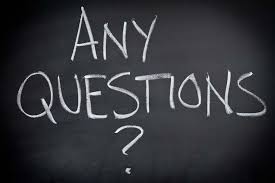
Have you ever been asked a question you would rather not answer? We all have. These are questions that are either too difficult to answer, upsetting or confusing. They might reveal our ignorance or be purposefully intended to annoy, frustrate or make us look (or feel) stupid. People ask them all the time, perhaps innocently, sometimes legitimately and occasionally with nefarious premeditation.
Whenever questioners sense we’re uncomfortable with their queries, they instinctively feel they won’t get a truthful answer. Their social radar is activated. This can prove awkward for both. A non-response or obvious avoidance can illicit a self-fulfilling cycle that heightens the anticipation of obsequious, defensive or dishonest replies. Unanswered questions can easily morph into toxic conversations as assumptions about motives festers. When we feel unsure about how to respond or feel tense in doing so, we’re more likely to lose our composure and become unfocused. This is not the wellspring of creative thought and good answers.
Zen wisdom suggests that knowing the question is the first step to knowing the answer. If only we knew the question before it was was asked, we’d be prepared to offer a much better answer. When you’re not entirely sure how to respond, or prefer not doing so, listen attentively to the need behind the question. If confused, enquire. What specifically do they want to know and why are they asking? A moment of reflection is critical in figuring out how best to respond. In fact, this brief pause is a response in itself.
Meaning always lies in the receiver, never the sender. So it’s important to ask whether what you heard is what was intended. We frequently misread the motive of the questioner. An initial pause provides a bit of time to come up with an appropriate answer. Never answer a question you don’t fully understand, especially one that appears accusatory or emotionally laden. A non-response lowers the anxiety level for both. When you’re known for not ducking tough questions, you come across as both credible and sincere.
Avoid a response you think they might want to hear, especially if it’s not what you really want to say. This is disingenuous and the root cause of misinformation and suspicion that travels quickly to others, that diminishes your brand or, worse, provides false hope. Ask broader questions that draw out the deeper concerns or latent issues. A response such as this may reveal what is intended but not said: “Your question makes me wonder whether you might have other concerns about this?” Legitimate enquiry, when calmly and genuinely expressed, is rarely perceived as offensive.
Never interpret questions as an implied critique, even though they could be. We all make assumptions but this can be a dangerous time to do so. The last place you ever want to be in a difference of views is on the defensive – back on your heels, floundering for an intelligent response. Drill down to ascertain the motive, purpose or cause. Don’t react to the tone of voice, as angry or judgmental as it may seem. A calm presence negates escalation. The perception of attacks on our character only prompts negative, rather than artful replies. Replace agitation with tranquility. Focus will more easily follow.
Often the best response to questions that do not have a precise answer is to simply acknowledge the legitimacy of the question and pleasantly say “I don’t know how to answer that.” If appropriate, you could add “Can you rephrase it so I better understand what your primary concern is?” Or “ I don’t have the answer right now, but I’ll look into it and get back to you.” Ensure your tone and pace of voice, and your facial expressions, align with your intent. Don’t undermine either your confidence or your purpose.
If you blow it, recover quickly. Ask observers who may have been privy to the exchange to give you feedback on what you said, how you said it, and how the other person may have interpreted it. Like everything else in life, we only learn from objective feedback. Contact the questioner and tell her you’d like to circle back to the question now that you’ve had more time to think about it. Apologize for not giving the best answer. Show you are vulnerable. Because when we don’t know what to say, we are.
